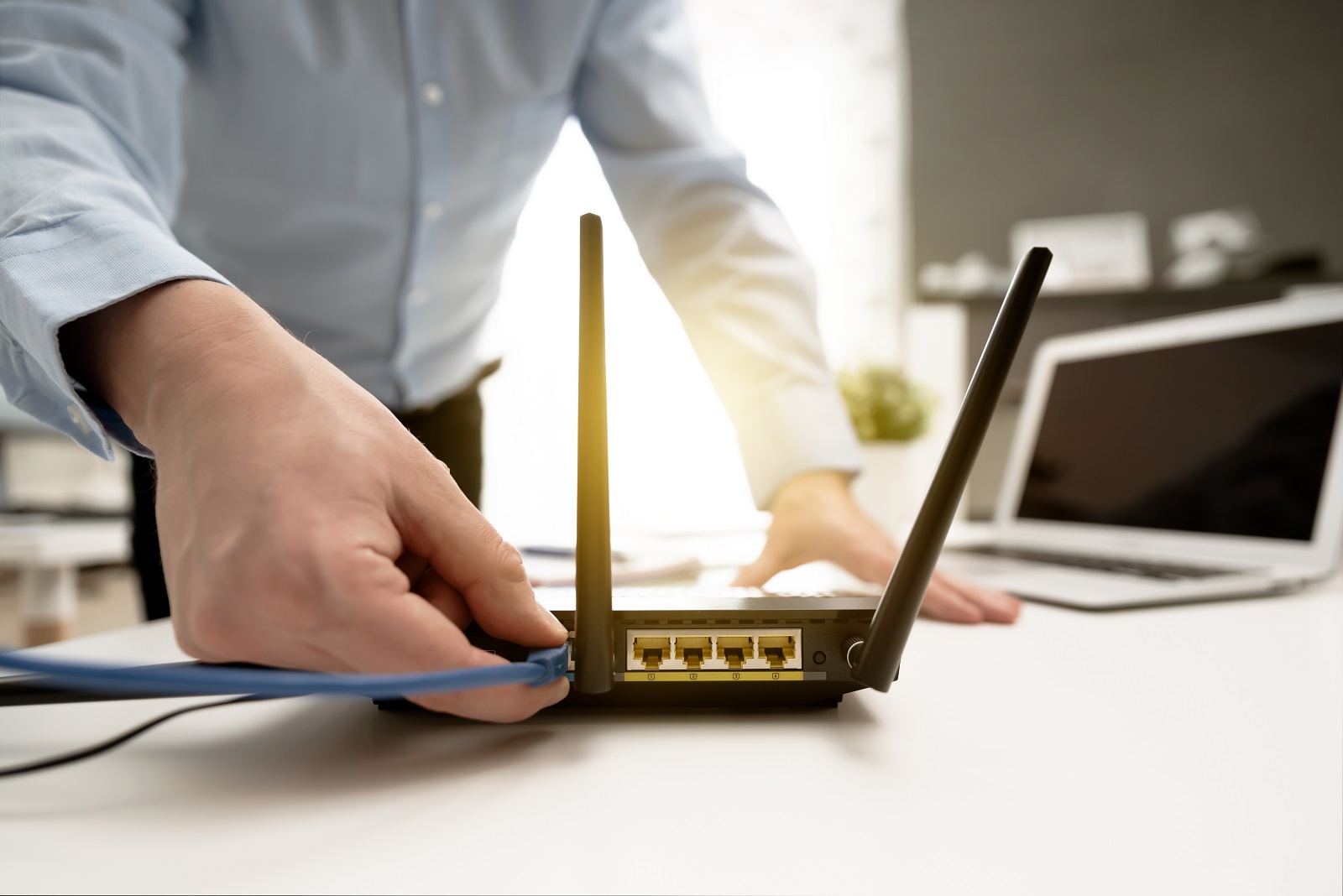Many of us relied on our home broadband, our own laptops and whatever we could lay our hands on to get the job done at the start of lockdown – even if that meant working from the sofa from a laptop balanced on the knees!
Of course that’s not a long term solution, but many businesses still have people working at home and struggling with connectivity and equipment that was never designed for home working. How many of us have found ourselves having to fall back on 4G hotspots on our phones, or competing for WiFi bandwidth for an essential work video call just as the kids want to log into Netflix?
As many businesses see homeworking or a mix of home and office working in their short, medium and even long-term futures, we need to switch from “just getting by” to systems that work effectively and help businesses thrive and grow. Here are some suggestions from the team at Onecom.
Mobile routers
If your teams have dodgy broadband – maybe it works in part of the house, or drops in and out – the first place you should advise them to look to fix these problems is the router. Turning it off and on might do the job, but there’s only so many times we can do this before giving up. Mobile routers are an ideal solution. Portable and wireless, they use a 4G or 5G signal as a replacment for WiFi. The Vodafone Gigacube is one of the best options out here – at Onecom we can offer a choice of plans. This router comes with the bonus of having failover to support any networks that are down, so you can carry on working even if your home broadband doesn’t.
Try MiFi
Like a mobile router, MiFi’s are compact, wireless devices that create a Wi-Fi signal that you can use on the go. A MiFi taps into your phone network and uses this connection to create a mini wireless broadband cloud or hotspot. This can then be shared between mobile internet-enabled devices — such as smartphones, laptops, tablets and even games consoles — that are within range of its signal.
The MiFi systems we offer have similar speeds to home routers, and in some instances (where 5G is available) people can obtain faster speeds than their traditional cabled router.
Cloud platforms
Cloud computing and home working go hand in hand – chances are, you are probably already using some kind of cloud software, such as Microsoft Teams. Cloud systems allow remote workers be productive, collaborate with each other and access resources they need to do their jobs. In the long run, employers will need to take a closer look at how many (and which) cloud apps and services they’re investing in and make sure employees are working securely. Security is one of the biggest challenges of working in the cloud. Onecom business cloud solutions are tailored to you and make use of the highest security features.
What equipment do they need?
While we’re no longer in a trial period of homeworking, employers still need to ensure employees have the equipment they need to work. People had to cobble together a workspace from what they had at the start of lockdown and could still be working this way 7 months later. It might be a good idea to assess your employee’s situations and think about any adjustments you could make. You don’t need to fork out for a ‘home office’, but an adjustable office chair, monitor or a desktop PC will go a long way to help productivity if they don’t have their own.
What about rural areas?
It’s well-known that rural regions of the UK tend to have the worst levels of internet connectivity. This is not good if you need to hold a Zoom meeting while the kids squabble over who gets to watch Netflix next. If you notice an employee is struggling, you might want to suggest that they look into fixed wireless internet, they’ll benefit from much lower latency and faster speeds than satellite and better coverage. You could also encourage them to use an Ethernet cable. Running their PC via WiFi will be a lot slower than connecting to a router this way. Another tip you can offer includes scheduling bandwidth-intense activities like software updates overnight to avoid it taking up too much time in the day.
5G – the longer term solution
More people working from home has created a situation where a lot more data traffic is being generated and higher demand for a better network experience – 5G business broadband can provide this. Full deployment is taking its time and although we’re not there yet, we expect to see businesses pick up 5G quickly to take advantage of its remote working benefits. 10x faster speed than 4G, reliability and lower latency will mean fewer dropped connections in your Zoom calls, super strong connection for those in the countryside and new ways of communicating – like 5G enabled VR and AR.
Whether you need to update your handsets to more secure devices or upgrade your cloud software for a more reliable way of working, Onecom will be able to provide a bespoke remote working solution for your business. Speak to one of our specialists here.
